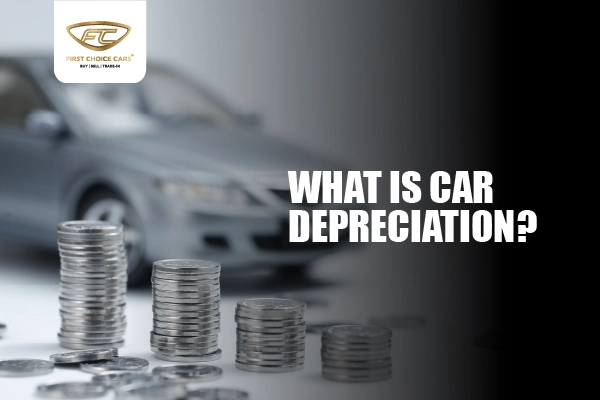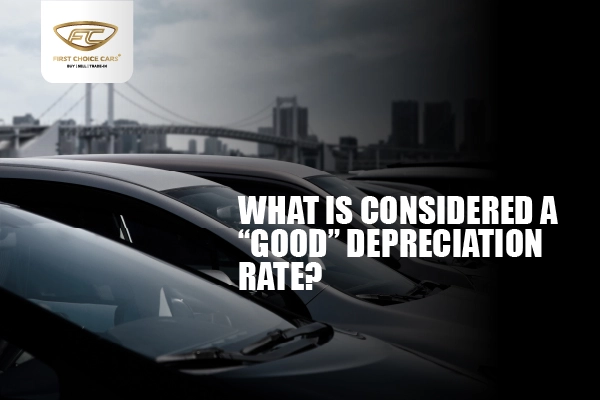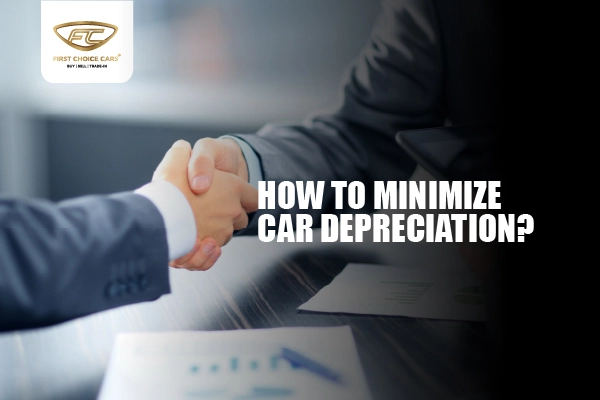When purchasing a car—whether brand new or used—one critical concept to understand is car depreciation. Depreciation refers to the decrease in a vehicle’s value over time, and it’s one of the most significant costs associated with owning a car. Many buyers focus solely on the purchase price, fuel economy, or brand reputation but overlook how depreciation can affect long-term value, especially when it’s time to resell or trade in a vehicle.
In this blog, we’ll explore what depreciation means, how it’s calculated, the main factors that influence it, and how it works specifically in the UAE. Understanding all of this will certainly help you make smarter automotive decisions.
What is Car Depreciation?

Car depreciation is the rate at which a vehicle loses value over time. The moment a new car leaves a showroom, it begins to depreciate. According to auto industry data, a new car can lose up to 20-30% of its value in the first year alone and up to 50-60% over five years, depending on various factors.
Depreciation is an unavoidable reality for most vehicles, though it varies depending on brand, model, maintenance, and market conditions. For instance, luxury cars often depreciate faster due to high initial prices and expensive upkeep, while reliable brands like Toyota or Honda tend to retain value longer.
How is Car Depreciation Calculated for a Car?
There are several ways to calculate car depreciation. Here’s a simple formula used in many cases:
- Depreciation = (Original Purchase Price – Current Market Value) ÷ Original Purchase Price x 100
For example, if you bought a car for AED 100,000 and its current market value after three years is AED 60,000:
- (100,000 – 60,000) ÷ 100,000 x 100 = 40% depreciation
In this case, the car has depreciated by 40% over three years.
Some calculators online allow you to estimate depreciation based on make, model, mileage, and year.
Factors That Contribute to Car Depreciation

Several key factors influence how quickly or slowly a vehicle loses value. Familiarizing yourself with them can help you reduce depreciation on your vehicle or help you make better resale decisions:
1. Make and Model:
Some brands depreciate slower than others. Japanese and Korean brands (e.g., Toyota, Nissan, Hyundai) tend to hold their value well due to their reputation for reliability and low maintenance costs. Luxury brands, while appealing, often lose value faster because of high repair costs and lower resale demand.
2. Age and Mileage:
Age and mileage are two of the most critical contributors to depreciation. A newer car with high mileage may still depreciate faster than an older car with low mileage. On average, cars in the UAE are driven between 15,000 to 25,000 km per year, which can significantly affect resale value.
3. Condition and Maintenance History:
A well-maintained car with complete service records will always retain more value than one with dents, scratches, or poor service history. Regular oil changes, tire rotations, and timely part replacements play a big role in keeping depreciation in check.
4. Fuel Efficiency and Engine Type:
In regions like the UAE, where fuel is relatively affordable, large SUVs and luxury cars are popular. However, global trends are moving toward fuel-efficient and electric vehicles. As this shift grows, vehicles with high fuel consumption may face quicker depreciation.
5. Accident History:
A car that has been in a major accident—even if repaired—often sees a drop in resale value. Buyers prefer clean records, and insurance reports are easily accessible in the UAE, making transparency very important.
6. Market Demand and Supply:
High-demand models tend to retain value better. Limited edition cars, or those that are difficult to find in the used car market, may depreciate slower due to scarcity. On the flip side, cars with low demand or excessive supply depreciate faster.
7. Registration and Ownership History:
A vehicle with multiple previous owners may be perceived as less trustworthy than one with a single owner. Also, a valid registration and up-to-date paperwork will enhance a vehicle’s resale value.
What is Considered a “Good” Depreciation Rate?

While all cars lose value, a “good” depreciation rate is typically considered to be less than 15% per year. Over a 5-year period, a car that retains 50-6-% of its value is seen as holding its value well.
Cars that depreciate slower are ideal for buyers looking to minimize long-term losses and are especially important for those planning to sell or upgrade within a few years.
Resale value is a top priority for buyers in the UAE. That’s why vehicles like the Toyota Land Cruiser, Nissan Patrol, and Lexus RX remain top sellers—they have lower-than-average depreciation and high resale demand.
How is Car Depreciation Calculated in the UAE?
In the UAE, car depreciation works similarly to global models, but it is influenced by local market trends, climate, and driving behavior.
Here’s a general rule for depreciation in the UAE:
- Year 1: 20-25% depreciation
- Year 2-3: 15-20% per year
- Year 4-5: 10-15% per year
- Year 6+: Slower depreciation but may depend on condition and mileage
Note that luxury cars and European models often depreciate faster due to high parts costs and specialized servicing requirements. SUVs and Japanese sedans, on the other hand, tend to depreciate slower.
Is Car Depreciation a Fixed Cost?
No, car depreciation is not a fixed cost. It is a variable cost that depends on multiple dynamic factors like market conditions, maintenance, and usage. Unlike insurance premiums or loan repayments that are typically fixed, depreciation fluctuates and can accelerate and decelerate depending on how you manage the vehicle as well as the current market trends.
How to Minimize Car Depreciation?

Let us look at a few tips on how to maintain your car to gain higher value when reselling:
- Buy used instead of new: A vehicle that is 1-2 years old has already absorbed the steepest depreciation drop.
- Choose reliable brands: Go for makes known for longevity and low maintenance.
- Maintain full-service records: Keep a log of every oil change, repair, and inspection.
- Avoid modifications: Custom body kits or tinted windows may reduce resale value.
- Limit mileage: Keep driving within a reasonable annual range to retain value.
Final Thoughts
Car depreciation is an important part of vehicle ownership that’s often underestimated. While it’s unavoidable, understanding how it works—and what influences it—can help you make better buying, selling, and maintenance decisions. In the UAE’s competitive car market, being informed about depreciation protects your investment and also gives you an edge when it’s time to resell or upgrade.
Disclaimer: All information, including pricing, vehicle details, and legal requirements, is accurate at the time of publication but may be subject to change due to market conditions or policy updates. While First Choice Cars makes every effort to ensure the accuracy of the information provided, we hold no responsibility for any errors, omissions, or outdated content. We recommend contacting our team directly to confirm the latest details before making any decisions.
